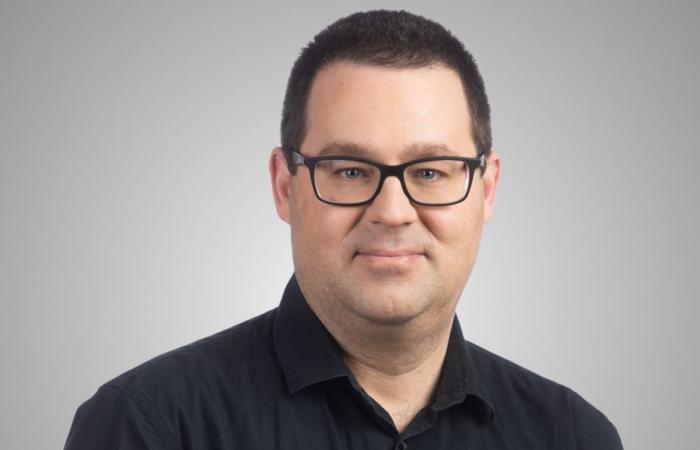The federal government would pay almost three quarters of the bill for social and affordable housing in Quebec?
Published at 00:31
Updated at 6:00 a.m.
It surprised me so much, I recalculated the numbers three times to be sure.
In the public sphere, the Trudeau government is being blamed for the housing crisis. An ongoing crisis, but even stronger these days as families are unable to find housing after the 1is July.
While Ottawa is taking the heat, it is quietly funding about 70% of the bill for social and affordable housing in Quebec, I found while searching through public documents.
In 2023-2024, the Quebec government invested $374 million of its own money to finance the construction, renovation or purchase of new social and affordable housing.
The federal government has invested 958 million through around ten programs in Quebec.
For the 1.322 billion invested by the two levels of government in 2023-2024, Ottawa therefore paid 72% of the bill and Quebec, 28%. 1.
You might think that by investing so much money, the Trudeau government would want to shout it from the rooftops. This is not the case.
Officially, Ottawa does not keep track of the total amount it invests in social and affordable housing in Quebec.
With the help of the Canada Mortgage and Housing Corporation (CMHC), I dissected all of this. This unprecedented exercise took me weeks, just for the year 2023-2024. CMHC then confirmed the figures (even if we don’t agree on certain adjustments made to stick to Quebec’s definition of affordable housing, in order to compare apples with apples).
Ottawa finances social and affordable housing in two ways. First, with its federal programs where NPOs must submit their projects. Then, it pours money into Quebec programs, by making agreements with the Quebec government.
In 2023-2024, Ottawa invested $443 million through its own programs, and $515 million through agreements with Quebec.
Mini-flat: in 2023-2024, Ottawa put a little more money into a program to help unlock projects partially funded by Quebec. That probably increased its percentage a little. But we can assume that year in, year out, Ottawa pays two-thirds of the bill.
By “bill,” I mean subsidies for the construction or renovation of new social and affordable housing. I have therefore excluded federal loan programs from my calculations.
According to Quebec’s definition, social housing is reserved for people earning less than $30,000 per year, affordable housing for those earning less than $50,000. Some of Ottawa’s programs target more affluent people. For the purposes of this exercise, these programs were excluded.
What is social housing?
Affordable housing is owned by municipal housing offices, housing co-ops or non-profit organizations. They must rent 100% of these affordable housing units to Quebecers with a modest annual income (in Montreal, less than $44,000 for one person). Each affordable housing project in practice reserves a certain number of social housing units for people with even more modest incomes (annual income less than $30,000), whose rent is paid in part by Quebec.
What does it mean to know that Ottawa is paying 72% of the bill?
First, since Quebecers send half of their taxes to Ottawa, they have the right to know whether housing is a priority for the federal government.
Then, we must highlight the good moves of governments. Under Justin Trudeau, the federal government is investing much more in housing. Would the Conservatives invest as much? We will have to ask Pierre Poilievre.
Finally, it shows that the Quebec government, which is more financially strapped for health and education, does not invest as much as the federal government in housing.
For Quebec, it is convenient and politically easy to blame Ottawa when things go wrong in a file. But in the case of social and affordable housing, the figures show that if the federal government decided to withdraw funding, we would be in trouble.
Given the state of the housing crisis, we can also conclude that the Legault government is not investing enough in social and affordable housing.
Since the 1970s, Ottawa has always invested more than Quebec to build social and affordable housing, except probably for about ten years.
In the 1970s, 1980s and early 1990s, Ottawa financed the construction of low-cost housing alone.
When the Mulroney and Chrétien governments stopped building new social housing in the name of returning to a balanced budget, the Quebec government took over social housing by creating AccèsLogis.
With the housing crisis in the early 2000s, the federal government began funding social and affordable housing again. Ottawa, which has greater financial capacity, quickly became more generous than Quebec.
In 2013-2014, the Quebec government invested $259 million in the construction of social and affordable housing.2and the federal government, 401 million in Quebec. Ottawa then assumed 61% of the bill. You read correctly: the Harper government then invested more money than the Quebec government.
For 10 years, Justin Trudeau has significantly increased federal investments in social and affordable housing in Quebec, even taking inflation into account.
During this time, the Quebec government barely increased its investments in real dollars.
In real dollars (taking inflation into account), Ottawa increased its investments by 86% in 10 years, Quebec by only 13% in 10 years. (In Quebec, this period includes both the Couillard and Legault governments.)
That said, even though Ottawa invests a lot of money, that doesn’t mean that federal programs are perfect.
“Since 2017, Ottawa has been investing billions, but there were few guarantees for lower-income households. [le logement social] ” says Véronique Laflamme, spokesperson for FRAPRU, an organization for the right to housing. “There are still many billions of federal dollars to spend, and too little is earmarked for non-profit social housing. In the last budget, we saw changes and we feel like the message was heard, but we are eager to see the details of the programs.”
1. How do we arrive at $958 million in federal funds? Here are the amounts for 2023-2024: federal programs (Affordable Innovation Fund, Affordable Housing Fund, Rapid Housing Initiative): $443 million; historic Quebec-Canada agreements: $272 million; Quebec-Canada agreement of November 2023 for five years: $105 million; Quebec-Canada agreement on housing: $138 million. We calculated only direct subsidies for social and affordable housing for both levels of government, according to the Quebec government’s definition of affordable housing. Excluded from the calculation: loans offered by the federal government to build social housing (in the Affordable Housing Fund) and direct assistance (mainly from Quebec, but also from Ottawa) to tenants to pay their rent.
2. According to the Quebec government budget in 2012-2013
Some reactions
We need all levels of government to work together to solve the housing crisis, and we are proud of our partnership with the Government of Quebec. […] We look forward to concluding new agreements with the Government of Quebec to build more affordable and social housing for Quebecers.
Office of Federal Housing Minister Sean Fraser
All stakeholders must put their shoulders to the wheel to build more housing, and more quickly. We want […] work in collaboration [avec Ottawa] to accelerate the delivery of housing. It produces results, we have more than 23,000 housing units financed by our governments. We will always work so that Quebec receives its fair share of federal investments in housing, and without conditions.
Office of the Minister responsible for Housing in Quebec, France-Élaine Duranceau
Quebec has the means to do more. In recent years, federal money has been used to deliver projects that had already been announced. Quebec must use federal funds to increase its own social housing objectives.
Véronique Laflamme, spokesperson for FRAPRU
What do you think? Join the dialogue







